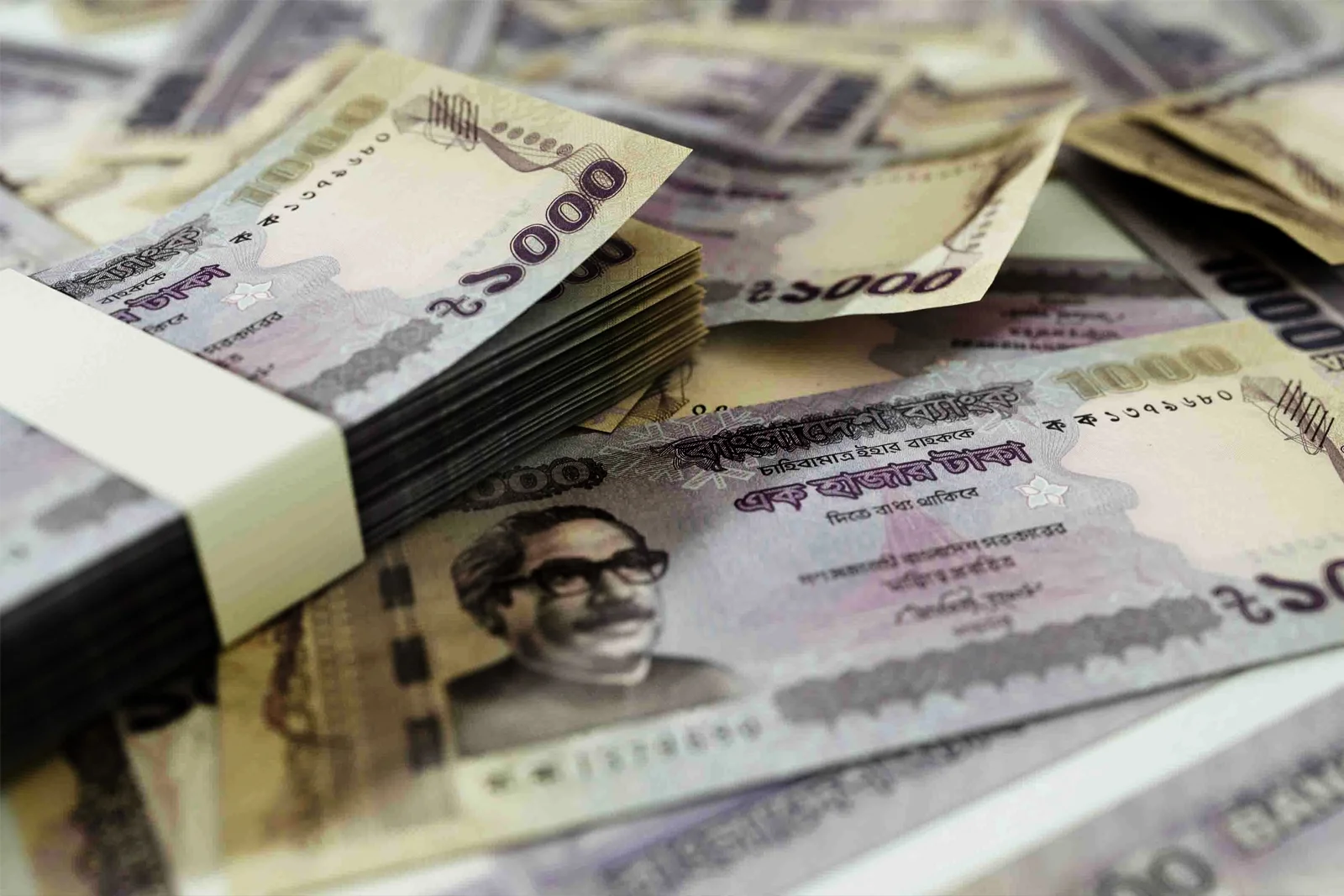
Crisis of Confidence: How Bangladesh’s Banking Woes Threaten Stability
Bangladesh’s banking sector is on the precipice of crisis. Politicization within financial institutions has led to a severe trust deficit, undermining public confidence at a time when inflation and economic pressures are already on the rise.
In an attempt to reassure the public, Husne Ara Shikha, Executive Director of Bangladesh’s central bank, held an unscheduled press conference last Wednesday. Shikha acknowledged that some banks are experiencing challenges in meeting the surge of cash withdrawals. As Husne Ara Shikha urged depositors to exercise restraint, she sought to calm fears by announcing a central bank-backed liquidity infusion of approximately $466 million for specific banks. Yet her suggestion that depositors withdraw funds “gradually” underscored the fragility of the current situation, revealing a stark lack of robust assurances.
A significant source of tension comes from Ahsan H. Mansur, the head of the country’s central bank, whose recent actions and statements have further destabilized public perception of the banking sector. Mansour has embarked on a high-profile campaign against prominent financiers, bankers, and business magnates in Bangladesh, whom he accuses of engineering a secretive plot to move funds out of the country. He claims these alleged activities are linked to the former regime and, in a conspiratorial twist, potentially coordinated with a military intelligence agency.
Mansour has gone so far as to reach out to the United Kingdom for assistance tracing funds allegedly used to purchase overseas assets illegally. His accusations in the Financial Times described a supposed asset “heist,” the estimated amount of which has increased from $13 billion to $17 billion within a month. However, despite his aggressive pursuit of these allegations, his focus on conspiracy theories rather than on immediate economic fixes has failed to resolve the mounting liquidity issues in Bangladesh’s banks. The public, rather than reassured, has grown increasingly nervous.
In an attempt to curb inflationary pressures, Mansour declared in late August that the central bank would avoid “printing money” as a solution. He also announced that “strong” banks would extend short-term, central bank-guaranteed loans to banks deemed “weaker.” Yet, instead of inspiring confidence, this move seems to have bifurcated public trust in the banking sector, fostering a perception of disparity between banks deemed “strong” and those labeled as “weak.”
Many depositors, especially those spooked by the ongoing panic, have reportedly moved their accounts to banks considered secure, such as BRAC Bank, where Mansour held the chairmanship until 2023. Rather than alleviating tensions, Mansour’s measures have seemingly exacerbated them, stirring a rush on deposits and escalating anxiety within the sector.
The domestic banking turmoil is spilling over into Bangladesh’s standing on the global financial stage. Several international banks, increasingly wary of the nation’s financial stability, have stopped renewing or extending credit lines with Bangladeshi banks. This has intensified the costs of critical imports, inflated transfer fees, and drive up overall transaction costs.
Bangladesh, already struggling under the weight of its pre-existing debt obligations, finds itself with over $1 billion in dues to Indian power companies, while ongoing debt discussions with Russia for the Rooppur nuclear power plant further strain financial resources. The elevated import costs and persistent political instability have compounded these challenges, which have forced Bangladesh to pursue international loans to stabilize its foreign exchange reserves. To this end, the interim government is in discussions with the IMF, seeking up to $5 billion in emergency funds. In June, the IMF provided $1.1 billion as part of a $4.7 billion bailout, yet this relief has proven insufficient, as Mansour now seeks an additional $3 billion in support.
Meanwhile, domestic inflation is climbing at an alarming rate, reaching 10.87%, with prices for essential goods like food spiraling even higher. The central bank’s decision to increase the letter of credit margin for essential imports such as oils, sugar, and chickpeas has further drained foreign currency reserves, creating an unsustainable financial situation for banks struggling to maintain liquidity. The resultant strain on Bangladesh’s economy is palpable, with households and businesses grappling with price hikes that seem unlikely to abate anytime soon.
Amid these intense economic pressures, officials within Bangladesh’s interim government face a difficult choice: prioritize immediate stability in the financial sector or address the concerns over political influence within its institutions. As diplomatic envoys urge the government to contain the politicization of the central bank and other state entities, they caution that without restoring trust in these bodies, the path toward peaceful, democratic elections may be derailed. Already, diplomatic concerns are mounting over potential cycles of retaliation and instability if political control within these institutions remains unchecked.
The volatility of Bangladesh’s banking sector has left the nation in a fragile position. With both domestic and international trust waning, Bangladesh’s leaders now confront a crucial moment: act decisively to restore stability in its financial system and foster economic confidence, or risk plunging further into economic hardship and political unrest. The choices made in the coming months will determine the health of Bangladesh’s economy and set the course for its political future.
